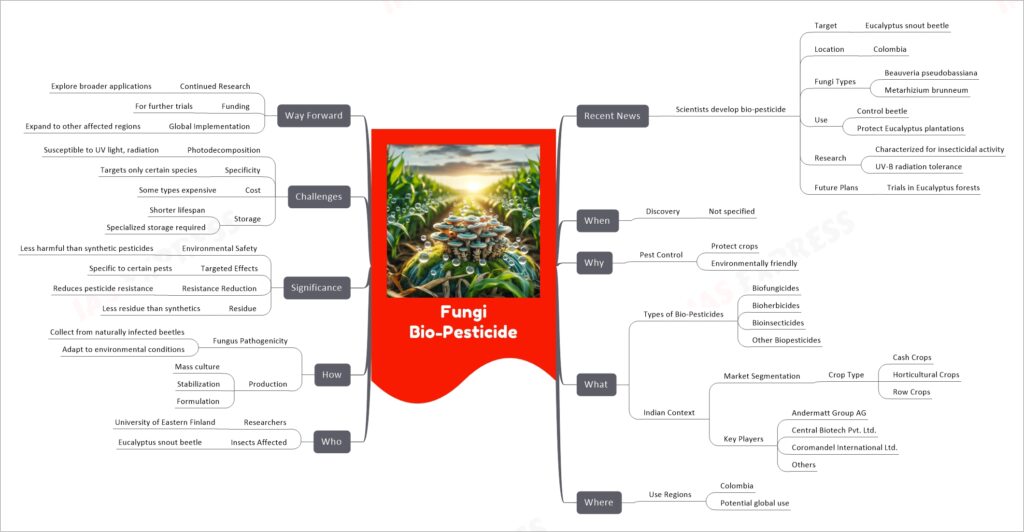Fungi Bio-Pesticide

Fungi bio-pesticide refers to a type of environmentally friendly pest control that uses fungi to target specific pests, such as the Eucalyptus snout beetle. This form of bio-pesticide, developed through research efforts like those by the University of Eastern Finland, offers an alternative to traditional chemical pesticides. It’s characterized by its adaptability to environmental conditions, targeted pest control, and lesser environmental impact. In India, the bio-pesticide market includes various forms, segmented by crop type and is supported by companies like Andermatt Group AG and Coromandel International Ltd. The main advantages of fungi bio-pesticides include their environmental safety, specific targeting of pests, reduced resistance, and minimal residue. However, challenges include their vulnerability to photodecomposition, limited pest targeting, higher costs, and specialized storage requirements. The future of fungi bio-pesticides lies in ongoing research, securing funding for further trials, and expanding their use globally.

